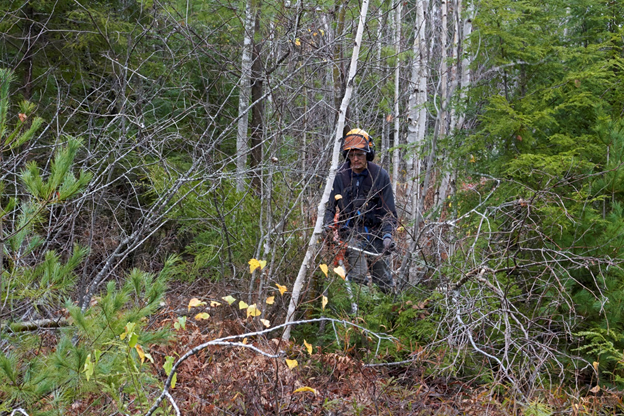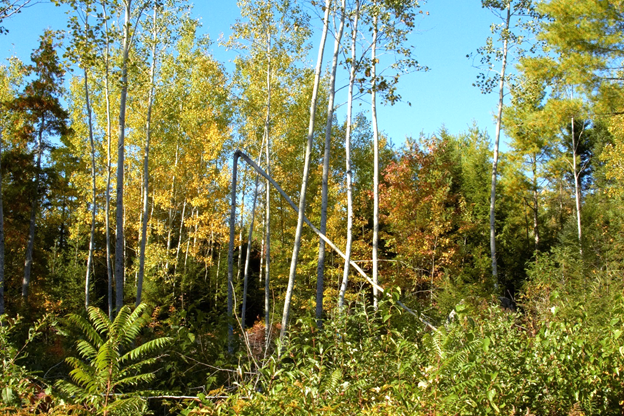DACF Home → Bureaus & Programs → Maine Forest Service → Projects → What will my woods look like? → Non-Commercial Thinning: Hardwood sapling stand
Non-Commercial Thinning
Site: Hardwood sapling stand
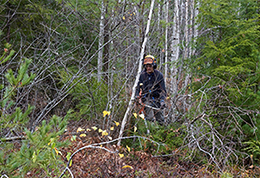
Woodland Owners’ View
There are way too many saplings and tree species in this stand. And it’s not certain what species is going to win over time. While it does cost the owner to do this, in the end, it’s worthwhile to choose what species to save and how the stand will look over time.
Logger’s View
Nothing to sell in the current market. Not worth bringing in any large, expensive equipment. Best to do this with hand-held brush saws, and charge by the hour or the acre.
Forester’s View
The stand is heavily stocked with sapling trees. Although natural thinning will occur over time, there is no guarantee that the most desirable species and stems will win out. Entering the stand now to thin and weed will improve the future stand composition.
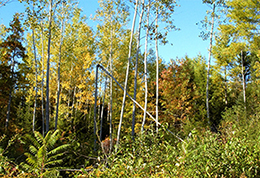
Woodland Owners’ View
Birds and other wildlife will still use this area. Right now the trees are small, but since they now have better light and more room, they will grow faster.
Forester’s View
Selected potentially valuable hardwoods are growing faster now the competition is gone. The next thinning may be commercial, depending on markets.
Wildlife Outcome
Many wildlife species love this type of stand, including hawks, squirrels, and sometimes moose.
Equipment Used
Gas-powered brush saw.
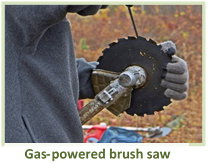
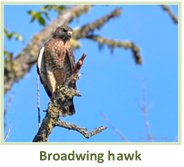
Location:
Wells Demonstration Tree Farm, Milford and Greenfield
Pam and Bryan Wells
http://wellsforest.com/
pwells@oakleafs.com
